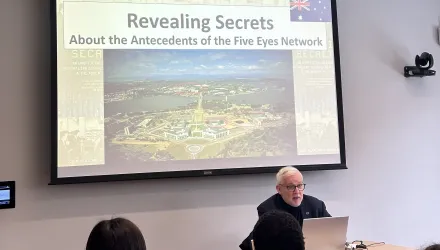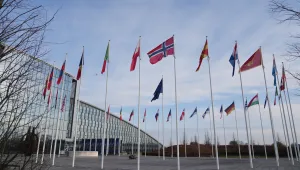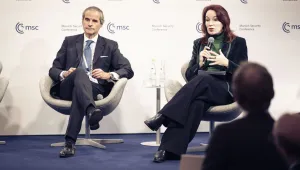Abstract
"Dismantling the Cold War provides a valuable overview of the Cooperative Threat Reduction legislation that Sam Nunn and I co-sponsored in the fall of 1991. This book should be widely read and discussed."
— Richard G. Lugar, U.S. Senator
"Dismantling the Cold War is required reading for anyone interested in the origins, current status, and future prospects of the Cooperative Threat Reduction program."
-- Sam Nunn, U.S. Senator, 1972-97
"This important book makes a major contribution to our understanding of the challenges and opportunities in the post Cold War era for U.S.-NIS cooperation."
-- Ashton B. Carter, U.S. Assistant Secretary of Defense, 1993-96
The 1991 collapse of the Soviet Union prompted international concern over the safety and security of the Soviet arsenal of weapons of mass destruction. In legislation sponsored by Senator Sam Nunn and Senator Richard Lugar, the U. S. Congress approved a program to assist Soviet weapons dismantlement. The Nunn-Lugar Cooperative Threat Reduction (CTR) program has since authorized more than $1.5 billion for a wide array of weapons destruction, demilitarization, nuclear security, and nonproliferation activities in the Newly Independent States (NIS) of the former Soviet Union.
Despite strong bipartisan support, the CTR program has been hindered by a variety of organizational, technical, and political problems. Both donors and recipients have heatedly debated its effectiveness. Misinformation about the program abounds in the NIS as well as in the U.S. Congress, where program funding has been threatened by growing opposition to anything that might resemble foreign aid.
Dismantling the Cold War is the first systematic assessment of the CTR program. It provides both insiders' views of how the complex policy initiative was conceived and "in-country" views of how it was carried out. This frank assessment of what U.S.-NIS cooperation has and has not accomplished offers programmatic, political, fiscal, organizational, and technical suggestions to help U.S. and NIS policymakers cope with the world's paramount proliferation threat.
John M. Shields is Senior Analyst at the Center for Nonproliferation Studies at the Monterey Institute of International Studies (MIIS). William C. Potter is the Director of the Center for Nonproliferation Studies and Professor of International Policy Studies at MIIS. He also directs the MIIS Center for Russian and Eurasian Studies.
Shields, John M. and William C. Potter. “Dismantling the Cold War: U.S. and NIS Perspectives on the Nunn-Lugar Cooperative Threat Reduction Program.” MIT Press, April 1, 1997



